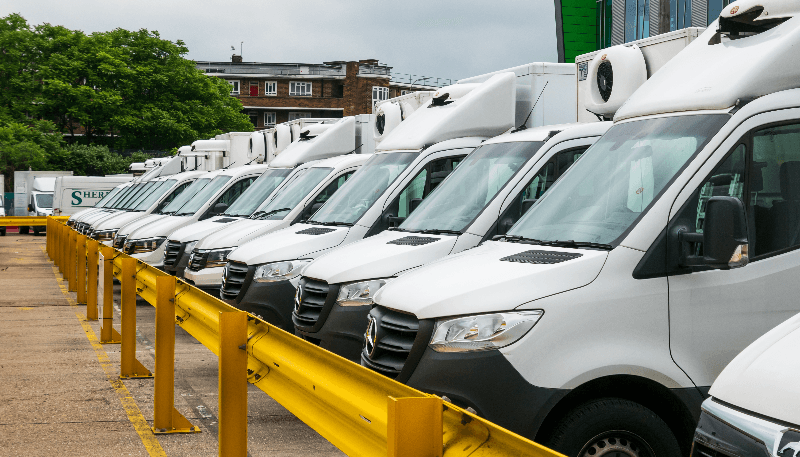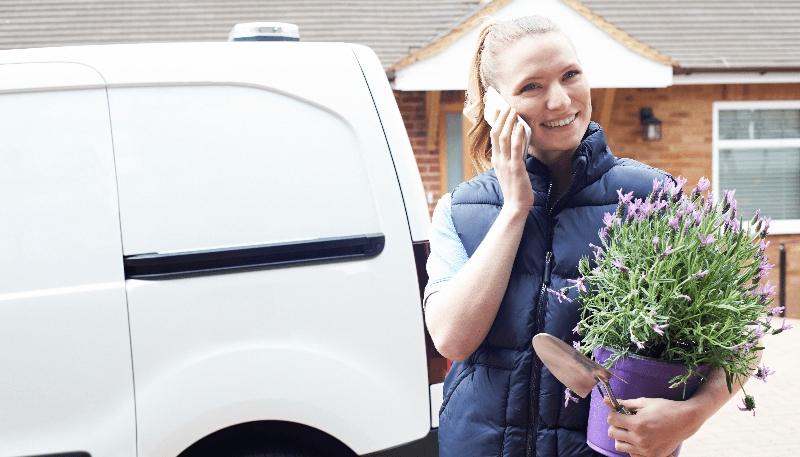With more than 25 years of experience to our name here at CoolVan, we’re known across the UK for the quality of our fridge vans for sale. And while the majority of our options are petrol and diesel, over the last few years we’ve been seeing an increasing shift over to electric fridge vans. They’re particularly useful for customers looking to reduce emissions across their fleet, or to maximise efficiency on those “last-mile” deliveries, especially in built-up urban areas.
Of course, you may well have your own reasons for considering an electric fridge van. And if that’s the case, you may well be wondering: are there currently any government grants that could apply?
What electric vehicle grants are available in the UK?
There are several government-backed schemes designed to make electric vehicles more affordable. The most prominent is the plug-in grant, which offers a discount on the price of eligible electric vans. Commercial vehicles still qualify for support, making it directly relevant if you’re upgrading your fleet. The grant is applied at the point of sale, which means you don’t need to apply, and there is no need for later reimbursement. (So for extra clarity, that means all our advertised prices for electric vans here at CoolVan have already had the grant taken off – one of the many ways we’re able to offer you the very best prices).
There’s also the Workplace Charging Scheme, which runs into March 2026. It’s primarily designed to support the installation of EV chargers at your base of operations. It can cover 75% of installation costs, up to £350 per socket, for as many as 40 sockets. There’s lots of reasons to consider it – for starters, installing your own infrastructure gives you full control over charging routines and supports efficient fleet operations. The scheme is open to sole traders, partnerships, limited companies, and charities that have a business premises and suitable off-street parking.
Some local authorities offer additional schemes to support electric vehicle upgrades or provide funding when replacing older, high-emission models. If you’re operating in a Clean Air Zone or near a ULEZ boundary, it’s worth reviewing regional support to increase your funding options. (The London ULEZ Scrappage Scheme or the Coventry Electric Fleet First scheme are two notable examples.)
How the plug-in van grant works
This grant basically reduces the upfront cost of a new electric van. For small vans (under 2,500kg), the discount can be up to £2,500. For larger vans (between 2,500kg and 4,250kg), it can be up to £5,000. These reductions are applied by dealerships that are registered with the scheme.
To qualify, the vehicle itself needs to meet strict emissions and performance criteria. This includes a zero tailpipe emission rating and compliance with minimum range requirements. Any conversion work also needs to maintain the criteria that support eligibility. Some conversions can affect battery performance or weight classification, so if you’re concerned about this, it’s worth checking with us in advance to talk about your chosen van’s potential eligibility for the grant.
The plug-in van grant uses a capped funding system. That means a defined budget for the overall scheme is already in place, and while it currently supports widespread use, it could potentially change at relatively short notice. For example, grant values and qualifying standards can shift as government policy evolves, so if you are considering an electric van for your business, it’s a good idea not to hang around too long.
How tax incentives support electric vans
Electric vans come with significant long-term tax advantages. For starters, they qualify for zero Vehicle Excise Duty (VED), which removes an annual cost, and can play a big part in simplifying financial planning.
As well as reducing operating costs, if you’re buying the van outright, that essentially gives you access to a 100% first-year capital allowance. The full cost can be deducted from your pre-tax profits during the same financial year, effectively creating an immediate impact on the bottom line. All of that makes electric vans a strong choice for managing business expenditure and reducing corporation tax.
Crucially, electric vans can also qualify for cost-efficient operation in Clean Air Zones and Ultra Low Emission Zones, including London’s ULEZ. It’s an excellent way to help keep costs down when you’re running regular city centre routes.
Where to apply for support
As we’ve touched on, for most vehicle upgrades, the plug-in grant is processed through your dealership or leasing company. This happens automatically when the seller is accredited under the scheme.
To access charging support on the other hand, you can apply through the government’s Workplace Charging Scheme portal. It’s a pretty straightforward process – you just need to register your details, submit proof of your business premises and parking availability, and upload a quote from an authorised installer. After approval, you’ll receive a voucher that the installer redeems once work is complete.
Capital allowances, road tax support, and other reliefs are handled through your existing processes with HMRC. Your accountant will be aware of the advantages specific to electric commercial vehicles, particularly those fitted with refrigeration units.
That’s all the essentials covered! If you have any questions about any grants, or you need any assistance or advice about any of our electric fridge vans for sale here at CoolVan, don’t hesitate to get in touch with our team. We stock vans from leading manufacturers like Ford, Vauxhall and Maxus – so whatever you need, you can always count on us to help! Give us a call on 0161 751 7140 or get in touch using our contact form.



